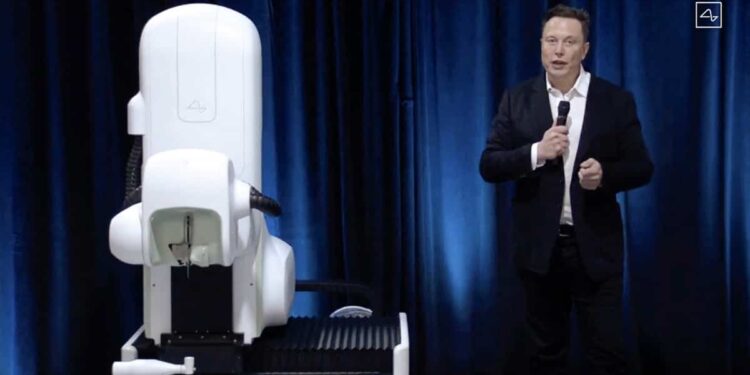Billionaire Elon Musk’s American start-up Neuralink released a video on Wednesday in which a patient plays chess with his mind on his computer using a brain implant.
Noland Arbaugh, 29, quadriplegic since a car accident, said he plays chess and the video game “Civilization” or takes Japanese and French lessons thanks to a brain implant that allows him, alone, to control the mouse of a computer.
“It’s crazy”, “it’s so cool”, said the young man, all smiles, in a video broadcast live by the company on the social networks X and Reddit.
“There are still many things to do, but it has already changed my life,” he assured, joking about having become “telekinetic”.
During an exchange with an engineer from the start-up, the patient recounted how this new technology gave him simplified access to many of his hobbies. He also described the way in which he manages to move the cursor on the screen, the implant translating his intention.
The Neuralink engineer promised to keep Internet users informed of the patient’s progress.
The boss of Tesla and SpaceX and owner of X announced in January that Neuralink had placed its first brain implant on a patient as part of clinical trials.
He then assured at the end of February that this patient was now capable of controlling a computer mouse by thought.
“The reason I joined this project is that I wanted to be part of something that I think is going to change the world,” Arbaugh said Wednesday.
Neuralink, headquartered in Fremont, California, obtained the green light from the US Drug and Medical Devices Regulatory Agency (FDA) in May.
Its implant, the size of a coin, has already been placed in the brain of a macaque, which then managed to play a video game without a controller or keyboard.
Elon Musk aims to offer his implant to everyone, in order to enable better communication with computers and to contain, according to him, the “risk for our civilization” that artificial intelligence represents.
Neuralink recently raised some $323 million from investors and says it wants to make paralyzed patients walk again, restore sight to the blind or even cure people suffering from psychiatric illnesses such as depression.



